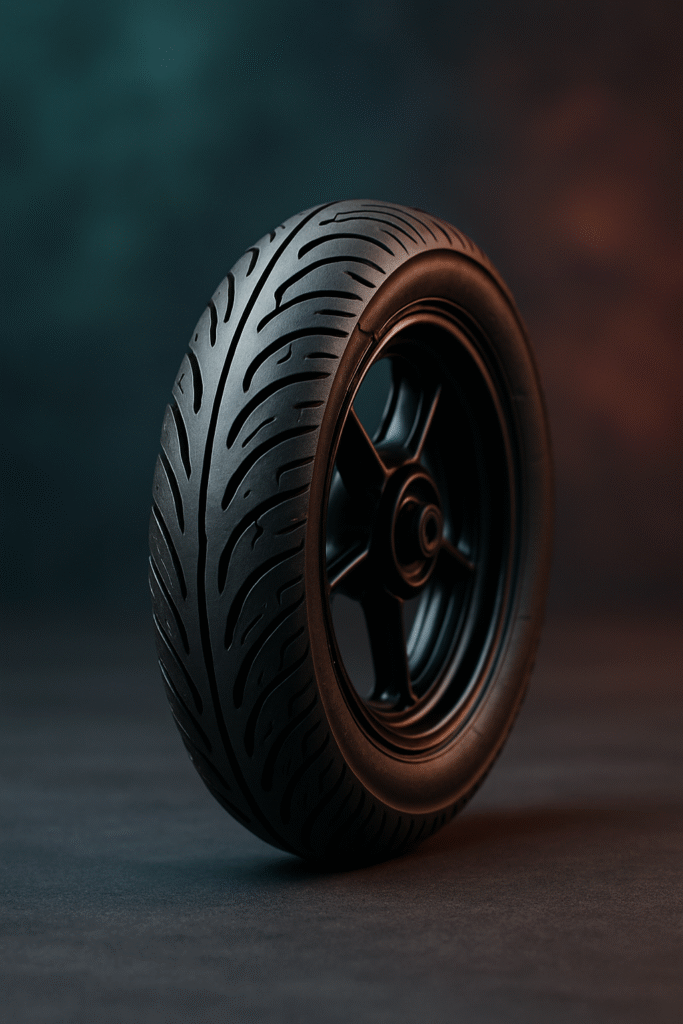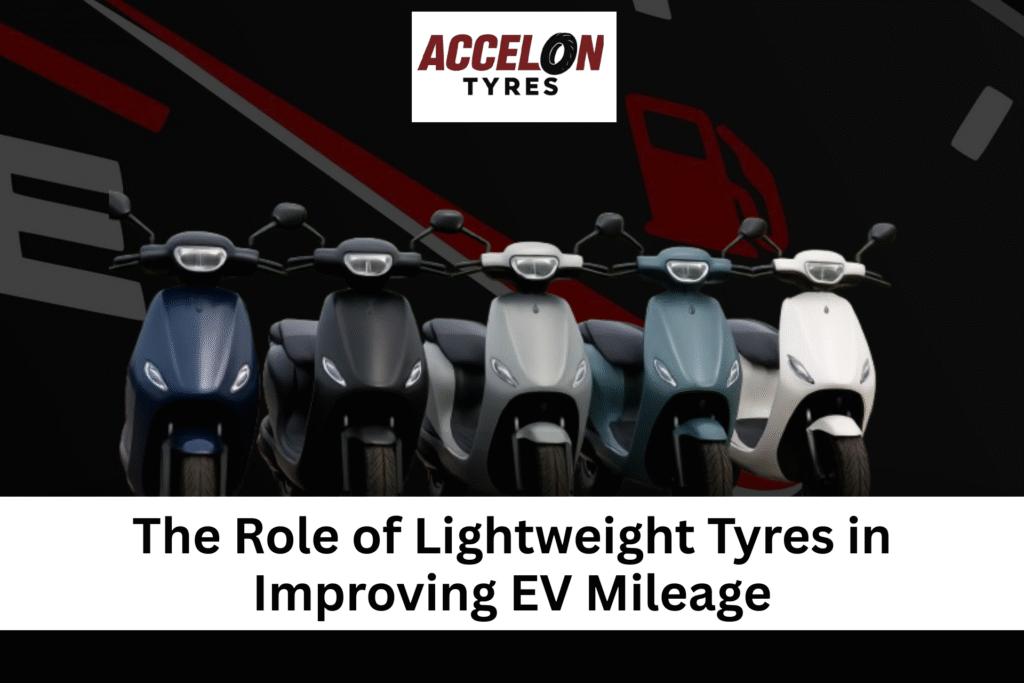The global shift toward electric vehicles (EVs) is not just about switching fuel types — it’s about maximizing efficiency at every level. From battery capacity to aerodynamics, every component plays a part in determining how far an EV can travel on a single charge. One of the most underestimated contributors to this equation is the tyre — particularly, lightweight tyres.
While traditional vehicles have long relied on heavy-duty tyres for support and traction, EVs demand a new approach. Lightweight tyres are emerging as a key innovation that directly impacts energy efficiency, driving range, and overall vehicle performance.
Why Tyres Are Crucial for EVs
Tyres do more than just support the vehicle; they are the main point of contact with the road, directly affecting how much energy the vehicle needs to move. For EVs, where battery range is limited and precious, reducing the energy needed to move the car even slightly can result in significant range improvements.
In EVs, weight matters more than ever. The heavier the vehicle (including its tyres), the harder the motor must work, draining the battery faster. That’s where lightweight tyres come into play.
What Are Lightweight Tyres?
Lightweight tyres are specially designed using advanced materials such as:
- High-tensile steel cords
- Aramid fibers (used in aerospace and racing)
- Nano-silica-infused rubber compounds
- Synthetic polymers for flexible strength
These materials reduce the tyre’s mass without compromising on grip, strength, or durability. Many of them also help enhance heat dissipation, reducing energy loss during long drives.

How Lightweight Tyres Improve EV Mileage
Let’s break down the core ways lightweight tyres improve EV performance:
1. Reduced Rolling Resistance
Rolling resistance is the force that resists tyre movement as it rolls on the ground. The lower the resistance, the less energy your EV needs to maintain speed. Lightweight tyres are engineered with low-resistance materials and tread designs that allow for:
- Smoother rotation
- Less friction with the road
- Less energy drain from the battery
Impact: Studies show that tyres with optimized rolling resistance can improve EV range by up to 7–10%.
2. Lower Unsprung Mass = Better Efficiency
Tyres are part of the unsprung mass — parts of the car not supported by suspension (including wheels, brakes, etc.). Lighter unsprung mass leads to:
- Faster acceleration
- Smoother braking
- Better regenerative braking recovery
- Improved battery efficiency
Impact: Even a 5 kg reduction per tyre can translate to extended range and better ride comfort.
3. Enhanced Heat Management
Tyres heat up as they roll, and EVs already generate heat from batteries and braking. Lightweight tyres are often designed with:
- Heat-resistant compounds
- Optimized sidewall designs
- Advanced ventilation grooves
This helps in cooling the tyre faster, ensuring that less energy is lost as heat.Impact: Maintains consistent performance, even on long drives or in hot climates.
4. Boost to Regenerative Braking
Regenerative braking is a standout feature in EVs, where the energy from braking is captured and sent back to the battery. Lightweight tyres improve this process by:
- Reducing the load on braking components
- Enabling quicker, smoother stops
- Enhancing tyre-road contact during deceleration
Impact: More efficient energy recapture, boosting battery savings over time.
5. Long-Term Cost Savings
Although lightweight tyres often cost slightly more upfront, they lead to:
- Less frequent charging
- Reduced brake wear
- Less strain on the electric motor
- Lower maintenance costs
Impact: Over 3–5 years, you could save thousands in energy and upkeep costs.
How to Choose Lightweight Tyres for Your EV
If you’re looking to upgrade or replace your EV tyres, look for:
- Low Rolling Resistance (LRR) rating
- EV-specific tread design
- Heat-resistant compounds
- Reinforced sidewalls for durability
- Quiet ride or “Acoustic” labelling for reduced road noise
Pro Tip: Always follow your vehicle manufacturer’s recommendations. Don’t just go by weight — compatibility matters.
Is It Worth Upgrading to Lightweight Tyres?
If your goals include:
- Maximizing your EV’s range
- Reducing charging frequency
- Saving long-term on battery and motor wear
- Getting a smoother, quieter ride
…then yes, investing in lightweight tyres like Accelon Tyres is worth it. Especially for city drivers or those who travel long distances frequently, the benefits add up fast.
Conclusion: Small Change, Big Impact
As the EV landscape evolves, the focus isn’t just on bigger batteries — it’s about making every part of the vehicle more efficient. Lightweight tyres are a simple yet powerful upgrade that significantly enhances EV mileage.In a world where every kilometre of extra range counts, smart tyre choices can make all the difference. Whether you’re buying a new EV or optimizing your current one, consider lightweight tyres as part of your journey toward smarter, greener driving.
FAQs About Lightweight Tyres for EVs
Q1. Are lightweight tyres compatible with all EVs?
Not always. Check your owner’s manual or consult a tyre specialist for the right fit.
Q2. Do lightweight tyres sacrifice safety or grip?
No — quality lightweight tyres offer equal or better grip than traditional ones due to modern materials and design.
Q3. Can lightweight tyres handle rough or off-road conditions?
Some are built for performance; others are for urban mobility. Choose based on your driving needs.

